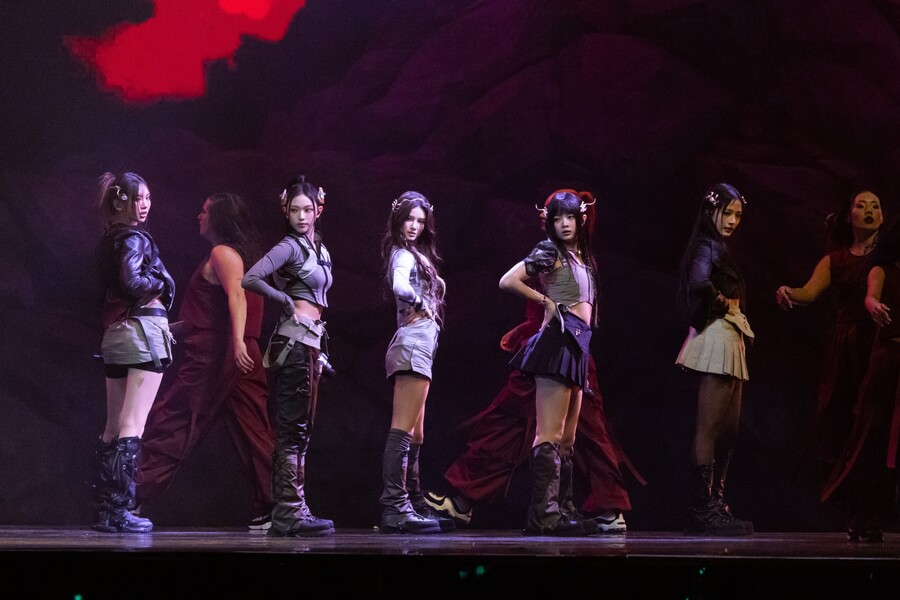-
[음악] (블룸버그) K 빠진 K-Pop은 대실수2024.01.12 PM 02:36
블룸버그 칼럼 요약
K-팝의 정체성 희석 없이 성장을 추구하라
블룸버그 칼럼니스트 바비 고쉬는 K-팝 업계가 세계적인 성장 둔화를 극복하기 위해 한국적 요소를 줄이려는 시도에 반대합니다.
고쉬는 "K"를 희석하는 것이 K-팝 문제 해결의 방안이 아니라고 주장합니다.
BTS 활동 중단의 영향: 고쉬는 BTS 활동 중단으로 인한 일시적인 침체는 인정하지만, 업계 전체가 위기라고 단정짓는 데는 동의하지 않습니다.
한국적 요소의 중요성: 고쉬는 K-팝의 독창성은 한국 문화와 음악 스타일이 결합된 데서 비롯된 것이라고 강조합니다. 한국인 멤버가 적거나 없는 그룹은 미국 시장에서 경쟁하기 어려울 것이라고 예측합니다.
Motown 사례: 고쉬는 미국 모타운 레이블의 사례를 빌려, 성공적인 음악 산업은 독특한 정체성을 유지하는 것이 중요하다고 지적합니다.
경고: 고쉬는 K-팝 업계가 글로벌 시장을 노리는 과정에서 한국적 정체성을 희석하지 않도록 경고합니다.
요약: 고쉬는 K-팝의 성장 둔화는 일시적인 것이며, 한국적 정체성을 유지하면서 새로운 성장 전략을 찾아야 한다고 주장합니다. 그는 한국 문화와 음악 스타일이 결합된 K-팝의 독창성을 강조하고, 이를 희석하지 않도록 경고합니다.
=============================================
(Bloomberg) K-Pop Without the ‘K’ Just Won’t Pop
https://www.bloomberg.com/opinion/articles/2024-01-11/k-pop-without-the-k-just-won-t-pop
Non-Korean bands can try to replicate the formula, but they will be relinquishing part of what makes them unique to the US market.
2024년 1월 12일 오전 6:00 GMT+9
By Bobby Ghosh
Bobby Ghosh is a Bloomberg Opinion columnist covering culture. Previously, he covered foreign affairs.

The real thing.Photographer: SeongJoon Cho/Bloomberg
K-Pop is betting that it can reverse its slowing global growth by becoming less Korean. This is a mistake: Without the “K,” the music is plain pop, undistinguishable from — and unable to compete with — the dominant American kind.
There is no question the K-Pop wave is waning. Bang Si-hyuk, whose Hybe Co. is behind such acts as BTS and NewJeans, believes the industry is in crisis. South Korean customs data shows that K-pop album exports in 2022 grew just 4.8% to exceeded $230 million, compared with 62.1% in 2021 and 82.6% in 2020.
This is in no small part because of BTS, far and away the industry’s biggest act, went into hiatus at the end of 2022, to allow the seven band members to fulfil their mandatory military service and pursue solo projects. At the time, there were fears of a decline in the US market, where BTS accounted for a third of all K-Pop sales and streams. The US is K-Pop’s second-biggest export market, behind Japan.
But overall album exports in the first half of last year were up a respectable 17%. Jungkook, a BTS member, scored a huge hit with his solo album Golden, and the single Seven garnered a billion streams on Spotify — faster than any song previously.
So Bang’s warnings about a K-Pop crisis seem a little premature.
But even if he’s right about the industry’s prospects, I am skeptical about his pre/s!crip/ion for how to return to the go-go growth of a few years ago. At a rare press conference last spring, he suggested that “the letter K needs to be diluted.”
Now the industry is taking him at his word — and following his suggestion to the letter. Several K-Pop management companies are backing bands that have few Korean members, or even none. KatsEye, a new girl group has only one Korean among its six members, all chosen from the audition show The Debut: Dream Academy, a collaboration between Hybe and the American label Geffen Records. NiziU is an all-Japanese girl group, and Hori7on’s seven members are all Filipinos.
Coming up next from JYP Entertainment, another major K-Pop management firm, is VCHA(비차), which is made up of five Americans and a Canadian, all of them picked from another TV program, America 2 Korea, known as A2K. These bands will be put through “training” to try to replicate the K-Pop look and vibe, but they will sing mainly in English.
But can they really be K-Pop bands? Fans of the genre are skeptical. Purists complain when older bands produce songs in English, and even the more tolerant draw the line at non-Korean singers.They point out that the first serious attempt at creating a “multinational” K-Pop band, the all-girl Blackswan, has never shaken off the suspicion of inauthenticity — and, despite several changes in its lineup, failed to break big.
The skepticism of fans is well merited. K-Pop has never been a distinct genre of music, with its own sounds and rhythms. Strip away the Koreanness of its performers, and you’re left with synth-heavy pop without a unique cultural marker. If anything, given the heavy influence of disco and hip-hop, it sounds vaguely American.
That’s the strength of American popular music: Disco, like rock, rap or hip-hop, can be (and have) reproduced anywhere and in any language. K-Pop is a derivative, albeit a very compelling one. But what the industry is attempting with the new bands is, at best, a derivative of a derivative. Lacking Koreanness, these acts will have to compete in the crowded American pop scene, where the success rate is infinitesimal.

Visionary Founder Berry Gordy Propels Motown to Unprecedented Soul and R&B Success in the 1960s and 1970s/Detroit Free Press
This is not to say that all the new bands are doomed to fail. The parallels that come to my mind are the non-Black acts that the great Detroit impresario Berry Gordy signed up to his Motown label in the 1960s and early 70s. Some of them, like the all-white Rare Earth, enjoyed some chart success, but not even Gordy’s legendary marketing machine could pass them off as authentically Motown.
K-Pop’s impresarios, who profess a deep admiration of Gordy and Motown, should heed that lesson.